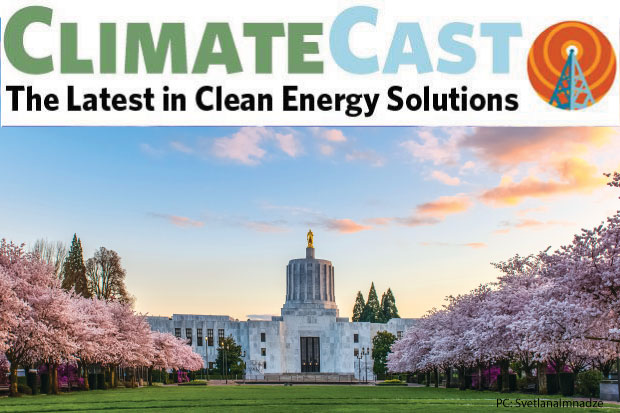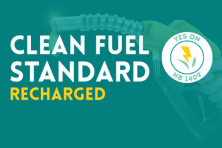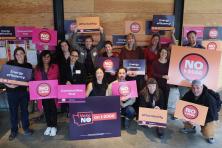Climate and the shifting tailwinds for clean energy continue to get strong media coverage, so much so that it makes the previous four years seem like a bad fever dream. While Washington State’s landmark climate year has made a big splash, Oregon has been quietly working to pass equally ambitious legislation with 100% clean electricity and moves towards cleaner buildings and transportation. The national tide continues to turn with the Biden administration reversing many environmental regulatory setbacks and Big Oil’s power continuing to slip.
Quietly, radically, climate action still possible for Oregon
Oregon’s efforts to pass big-ticket climate legislation have previously been in the news for the wrong reasons, but 2021’s effort to pass a 100% clean electricity law appears to be smoother sailing. Oregon would join 17 other states with similar goals, and its neighbor Washington with a similar law, but its end dates to reduce emissions 80% by 2030, 90% by 2035, and completely eliminate emissions by 2040 are a nearer deadline than nearly every other state that has adopted a clean power plan. Meanwhile, demonstrating more leadership at the city level, Portland’s Clean Energy Community Benefits Fund awarded its inaugural round of grants in April, doling out $8.6 million across 45 grants towards clean energy projects and workforce development in the Portland area. The fund centers racial and social justice in its awards and is unique because it is the first municipal clean energy fund in the nation to benefit people of color while being led by people of color.
And the Oil comes crumbling down?
A surprising set of headlines came this week labeled as “shareholder rebellions over climate” and “defeat by climate activists.” A group of activist Exxon Mobil shareholders elected at least two board candidates who are committed to cleaner energy and moving away from oil and gas. Meanwhile, a majority of Chevron shareholders rebelled against the company’s board by voting 61% in favor of a proposal by activist Dutch campaign group Follow This to force the group to cut its carbon emissions. Perhaps the most dramatic was in the Netherlands where a court instructed Royal Dutch Shell that it must sharply cut greenhouse gas emissions from all its global operations this decade. While the financial industry at large has been self-avowing a shift to cleaner energy in the past few years, these are some of the first indications individual shareholders of Big Oil are deeply concerned about the financial risks posed by climate change.
Gamechangers: Ford continues to speed towards electric
Ford made huge headlines with its F-150 Lighting announcement last month. Everyone was talking about it. It also appears everyone is buying in with electric vehicle sales up 184% in May. Not simply a US phenomenon, Ford is making moves to sell EVs all over the world, with the electric Mustang also at the top of Norway’s car sales last month. In fact, Ford is already producing more electric Mustangs than gas-powered versions. And while EVs might be new(er) for the Ford production line, it’s an old hand at big-time volume, a potential game changer for EV adoption worldwide.
One Thing you Can Do:
Most of the country is experiencing some type of strange weather—lack of rain and higher temperatures stand out as two in the Pacific Northwest. A majority of folks think global warming is happening but most are reluctant to talk about it. Here is our tipsheet on having climate conversations. Research from Yale shows that the more people talk about climate, the more likely they are to take action.
Live in Oregon?
There’s just one month left in Oregon’s legislative session and there are two big climate bills on the line. Tell your legislators to support 100% clean energy and stronger local energy efficiency standards!
In Brief—Video Spotlight 100 years later:
A century ago, Black Americans suffered one of the worst episodes of racialized violence in US history when a white mob attacked and killed hundreds of residents in the Greenwood district of Tulsa, OK. The Tulsa Race Massacre remains invisible for many Americans, with justice yet to be served. While highlighted this year in a bigger way and recently shown in popular culture, we encourage our readers to dive deeper into this event to try and understand this “real thing that happened.”





